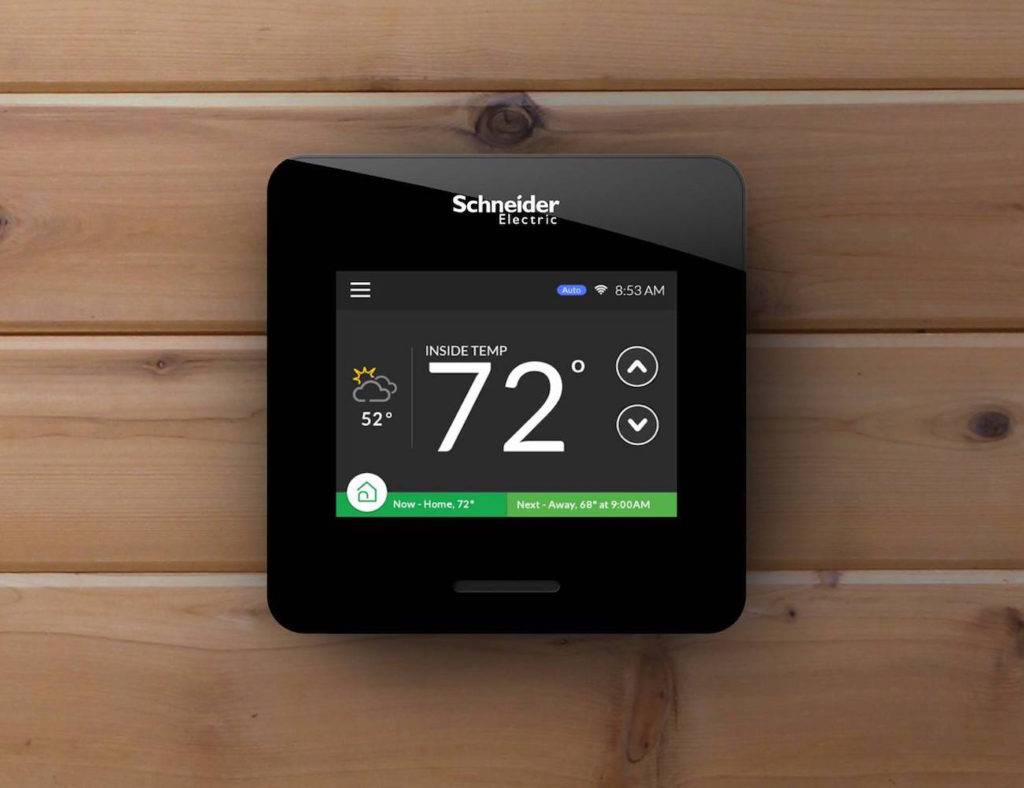Energy management and automation firm Schneider Electric announced on Wednesday a new self-learning feature, called Eco IQ, for its Wiser Air smart thermostat.
Instead of manually changing the temperature throughout the day, users tell the thermostat if it’s too hot or too cold and Eco IQ changes the temperature accordingly. Schneider Electric believes that the self-learning system will be able to gauge the temperature better than a usual thermostat by removing the predetermined set point.
See Also: You pinged, sir? SmartAll launches AI butler for your smart home
Wiser Air will slowly adapt to user preferences, but if the user doesn’t complain for a few days it will start to implement changes faster.
Eco IQ works similar to the self-learning system inside the Nest smart thermostat, which take into consideration whether you are out of the house, the weather outside, and manual changes to the temperature.
It also utilizes information from its “top ranking” forecasting service, WeatherSentry, to change the temperature before a storm or blistering heatwave begins.
Energy savings aren’t the real driver
Schneider Electric claims that most thermostats aren’t utilized to save energy anyway.
“Created by building automation and HVAC experts at Schneider Electric, Eco IQ is the most advanced self-learning algorithm on the market today,” said Paul Buda, senior group expert at Schneider Electric. “With Eco IQ, Wiser Air challenges the very idea of set points – commonly used as a determining factor of user comfort in other solutions – freeing users from the need to set temperatures and schedules.”
Better understanding of consumer use of energy via these devices will mean better ability to control and curb — or increase — electricity consumption via demand response systems. The critical issue is that the consumer often needs to take action themselves to turn an appliance down or off entirely versus having it automatically move.
The Eco IQ update will be pushed to all Wiser Air thermostats in the coming weeks.

















